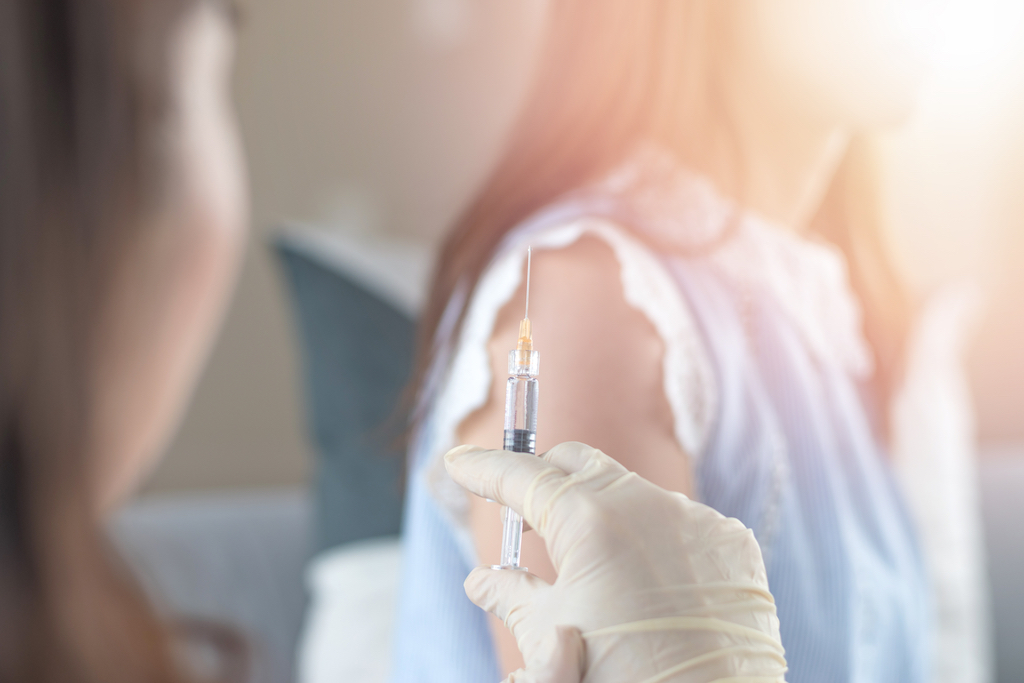Could a 100-year-old vaccine protect against COVID-19?
Several clinical trials around the world are now examining whether this vaccine could protect against this new foe.

Get the world’s most fascinating discoveries delivered straight to your inbox.
You are now subscribed
Your newsletter sign-up was successful
Want to add more newsletters?

Delivered Daily
Daily Newsletter
Sign up for the latest discoveries, groundbreaking research and fascinating breakthroughs that impact you and the wider world direct to your inbox.

Once a week
Life's Little Mysteries
Feed your curiosity with an exclusive mystery every week, solved with science and delivered direct to your inbox before it's seen anywhere else.

Once a week
How It Works
Sign up to our free science & technology newsletter for your weekly fix of fascinating articles, quick quizzes, amazing images, and more

Delivered daily
Space.com Newsletter
Breaking space news, the latest updates on rocket launches, skywatching events and more!

Once a month
Watch This Space
Sign up to our monthly entertainment newsletter to keep up with all our coverage of the latest sci-fi and space movies, tv shows, games and books.

Once a week
Night Sky This Week
Discover this week's must-see night sky events, moon phases, and stunning astrophotos. Sign up for our skywatching newsletter and explore the universe with us!
Join the club
Get full access to premium articles, exclusive features and a growing list of member rewards.
Scientists around the world are racing to find ways out of the new coronavirus pandemic. Some are working to develop new drugs and vaccines, while others are looking to see whether therapies we already have may help against COVID-19.
In the latter category, researchers have dusted off one intriguing compound in our collective medicine cabinet — a century-old vaccine to fight tuberculosis, a bacterial disease that affects the lungs. A couple of early analyses, which have yet to be peer-reviewed, have found that countries that require this vaccine, called Bacillus Calmette–Guérin (BCG), seemed to have been hit less severely, in terms of both number and severity, by the coronavirus that causes the disease COVID-19.
Could this vaccine be protecting people from COVID-19? The short answer is: We don't know. But several clinical trials around the world are now examining whether this vaccine could protect against this new foe.
Related: 13 coronavirus myths busted by science
"I was originally quite skeptical" that the studies could tease apart all of the other factors that could be causing some countries to be hit harder with COVID-19 than others,” said Paula Cannon, a distinguished professor of molecular microbiology and immunology at the University of Southern California's Keck School of Medicine, who is not a part of any of these studies. Among those factors are the quality of the healthcare system, measures put in place to fight the disease and testing capacity. Still, it is a "provocative idea" and the "data is tantalizing," Cannon said.
Dozens of countries, including Japan and China, require children — typically newborns — to receive the BCG vaccine as protection against tuberculosis, an infection that is typically more common in lower-income countries. Other countries, such as Spain, France and Switzerland, used to require the vaccine but stopped because the risk of catching the disease in those countries lessened, according to one of the preprint studies published in medRxiv on March 28. Other countries, such as the U.S., Italy and the Netherlands never had such a universal vaccine policy for the BCG vaccine.
But scientists have long known that "almost by lucky accident," the BCG vaccine doesn't just protect against tuberculosis, it also helps fight other viruses, respiratory infections in particular, Cannon said. The vaccine, "in some sort of unexpected and magical way, is like a broad immune booster," she said.
Get the world’s most fascinating discoveries delivered straight to your inbox.
For example, one study conducted in Guinea-Bissau in West Africa found that children who were vaccinated with BCG had about a 50% reduction in overall mortality, largely because the vaccine reduced respiratory infections and sepsis, or blood poisoning, according to the medRxiv study. Other studies, mostly conducted in animals, have found similar broad-spectrum protections from the BCG vaccine.
Weakened, live bacteria vaccine
The BCG vaccine is made up of weakened forms of live Mycobacterium bovis, closely related to the bacteria that causes tuberculosis. It was first developed in the 1920s in Paris and later shipped all over the world.
Now, countries from Japan to Denmark have their own BCG vaccines, made using different formulations of live bacteria — and each one has varying degrees of immune boosting ability, said Dr. Ofer Levy, the director of the precision vaccines program at Boston Children's hospital and a professor at Harvard Medical School.
Typically, live vaccines provide a "strong and long-lasting immune response" and sometimes even "lifelong protection" against the germ, whereas inactivated forms of vaccines, such as those in flu shots don't provide immunity that's "as strong," according to the U.S. Department of Health and Human Services.
While most vaccines prompt one arm of the immune system — the adaptive immune system — to create antibodies that target very specific pathogens, the BCG vaccine taps into the other arm, the innate immune system. This system doesn't discriminate against pathogens and releases immune cells rather quickly to fight any foreign substance. The BCG vaccine thus boosts the body's production of non-specific immune cells.
The medRxiv study and another preliminary study recently published in Research Gate came to similar conclusions: there seemed to be a correlation between countries that require BCG vaccines and a reduced spread and severity of COVID-19 cases. For example, Portugal — which has required BCG vaccines for infants — has over 16,000 cases of COVID-19 but only 535 deaths whereas neighboring Spain has over 169,000 cases and over 17,000 deaths.
Similarly, Ireland, with 9,655 cases and only 334 deaths, requires the BCG vaccination, whereas the U.K. with 89,554 cases and 11,346 deaths no longer does. Based on these numbers, Ireland has a fatality rate 3.5% whereas the U.K. has a fatality rate of 12.7%. Of course, there are big population number differences across these countries, along with other variables that could affect death and infection rates.
These preliminary studies are "very flawed," because many factors such as differences in wealth and testing ability, can affect the outcomes Levy told Live Science. But the authors are "doing the best they can in a very difficult situation." While there's no direct evidence that BCG vaccines will reduce people's risk of developing COVID-19, "I'm enthusiastic about the hypotheses," Levy said.
It's difficult to draw firm conclusions, but there's enough scientific evidence to prompt clinical trials, and his team is looking into starting one in the U.S, he said. Clinical trials analyzing the protective effects of the vaccine against COVID-19 are already underway in other countries, including Australia and the Netherlands.
Vaccination or revaccination?
"I'm kind of puzzled," by the implication that the BCG vaccine might be able to protect for such a long period of time once someone has received it as a baby, Cannon said. Indeed, it's not clear how long the BCG vaccine effects can last.
The second study, which also has not been peer-reviewed, analyzed how countries with re-vaccination policies — or booster shots — fared in the COVID-19 pandemic. That study found that countries without re-vaccination policies had a 5.2% case fatality rate, versus a0.6% case fatality rate in countries that required re-vaccination.
"The big kind of asterisk, if you like, against all of these studies, is that they are really dealing with massively incomplete information," Cannon said. "We're all guessing what the true infection rates and the case fatality rates are because there isn't widespread uniform testing in every country."
Still, "I applaud the authors for at least, you know, doing what they could with the available data and providing some very provocative hypotheses," she said. "The good news is they're very testable."
In another world, we would be doing animal experiments to test this hypothesis. In this world, amid the coronavirus pandemic, we don't have time for that, she said. But the BCG vaccine has a "very safe track record," and likely can be tried in those who aren't old and who don't have weakened immune systems (since this is a live vaccine, it can potentially cause more side effects for older people or those with weakened immune systems), she added.
The human immune system is like an orchestra, "it's massively interconnected and what the BCG vaccine seems to do is maybe it gives like a little bit of extra control to the conductor," Cannon said. "So in the symphony of immune attack against respiratory viruses, the orchestra is able to go full blast, straightaway, all together, in sync, rather than kind of playing catch up."
- 28 devastating infectious diseases
- 11 (sometimes) deadly diseases that hopped across species
- The 12 deadliest viruses on Earth
Originally published on Live Science.
OFFER: Save 45% on 'How It Works' 'All About Space' and 'All About History'!
For a limited time, you can take out a digital subscription to any of our best-selling science magazines for just $2.38 per month, or 45% off the standard price for the first three months.

Yasemin is a staff writer at Live Science, covering health, neuroscience and biology. Her work has appeared in Scientific American, Science and the San Jose Mercury News. She has a bachelor's degree in biomedical engineering from the University of Connecticut and a graduate certificate in science communication from the University of California, Santa Cruz.
 Live Science Plus
Live Science Plus






